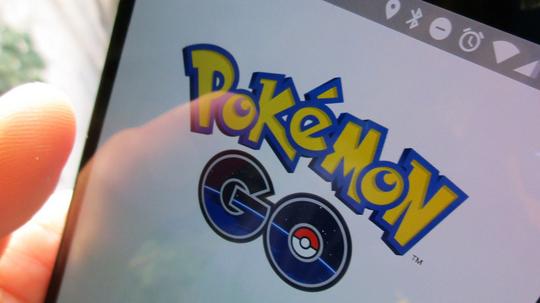
When Pokemon Go, the augmented reality app that allows players to catch virtual Pokemon in the real world, exploded in popularity this summer, University of Illinois-Chicago communication professor Adrienne Massanari saw a learning opportunity.
She started a Google Doc where she collected articles, documents and studies that discussed the tech and its implications, as a way to collect resources for discussing Pokemon Go with her fall media and pop culture classes. She then shared it with her academic circles, inviting them to add their thoughts and resources.
Three months later that Google Doc has morphed into a crowdsourced Pokemon Go syllabus that has over 100 contributors from around the world, including researchers from Harvard University, Massachusetts Institute of Technology and Utrecht University in the Netherlands. The 33-page document has links and resources on everything from the history of Pokemon to wearable technology to censorship of the game in Iran and Thailand. It includes ideas for activities ("Build an AR game with ARIS") and discussion questions ("What are the privacy implications of the use of locational data in Pokémon GO?")
Massanari hopes to encourage nuanced conversation around the nascent tech.
"I didn’t want media coverage to lapse into the kind of utopian/dystopian discourse (It’s awesome and it changes everything, or It’s terrible and it changes everything!) we often see when new technology is adopted," she told Chicago Inno over email.
In this Q&A, Massanari explains why she started the crowdsourced syllabus, and what we should talk about when we talk about Pokemon Go.
Chicago Inno: What inspired you to take a closer look at Pokemon Go?
Massanari: When it first released this July, there were more people using Pokemon Go than Twitter and spending more time on it than Facebook. News outlets were covering the game, but weren’t providing very much in the way of good analysis into why people were playing, and why it matters. At the same time I was seeing my personal Facebook feed explode with other academics posting cool stories and interesting thoughts about the game and contextualizing it within their own game studies and mobile media research. However, there was no central repository for all of us to share this stuff. More importantly, there was also no place for us to point other people - our colleagues, teachers, journalists, researchers - to a place where they could get some context around PGO.
The syllabus touches on a variety of subjects from high level tech (augmented reality and information security) to social and cultural dynamics. What are some of the discussions that can come from Pokemon Go?
I think the great thing about Pokemon Go is that it can be a great object for study in so many different questions. There’s certainly all of those questions about how these kinds of augmented reality games offer a different experience of our everyday lives (particularly of urban spaces), for example, how we can discover new and different aspects of the city that we hadn’t really experienced before? Then are its social aspects - the idea of being out on the streets with others to play in a shared virtual space that’s also shared physically offers a whole new host of interesting possibilities for gameplay (and some challenges for the parks, museums, and city spaces that have to deal with this unforeseen use of their space). This leads into a bunch of questions around privacy and surveillance - what do we risk when we make our location data public in these ways and are we okay with a private company being able to have (almost) unlimited access to our movements?
Have you learned anything new from the crowdsourced information that you find really fascinating?
One of the most interesting things to me personally were the number of articles and anecdotes that people were offering about how the game really became a point of connection between family members. So many people were going outside after dinner to play with their kids, or meeting up new people in the park to play, or simply wandering around during their lunch hour to catch a few Pokemon. I think it puts to rest the idea that video games are inherently anti-social or that we can’t make games that allow us to be even more attuned and engaged with our communities.
What topics and materials will you be including in your media classes this fall?
I’m teaching a popular culture class this fall, and I know during the section on gaming we’ll be discussing Pokemon Go. We’ll be discussing both the game itself and delving into how quickly the game became a cultural phenomenon (and sort of dropped off the radar).








